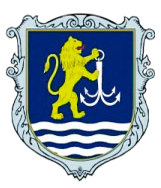ENVIRONMENTAL PRODUCT AS A RESULT OF GREENING LOGISTICS ACTIVITIES
Abstract
Introduction. Sustainable development is a modern concept of human development that allows to achieve harmony in the triad – economy, ecology, society. Reach the goal of sustainable development is possible only through the penetration of the ecological paradigm in all spheres of human life, in other words, provided the general ecologization of the economy and society. Logistics as an area of economic activity makes a negative contribution to the state of the environment. Taking into account the environmental aspect in logistics has led to the emergence of such definitions as: eco-logistic, ecologistic system, eco-logistic service and eco-logistic product. The purpose of the article is to substantiate the feasibility of introducing the definition “eco-logistic product” and study its features. Results. The article analyzes the characteristics of logistic and ecologistic services; the properties and structure of the eco-logistic product are determined; the essence of ecological value of eco-logistic product is investigated. Conclusions. Changing the worldview paradigm of mankind and its offset to the sustainable development concept, based on the convergence of economic, social and ecological values, has led to the need for many types of human economic activity ecologization, including logistic. Eco-logistic, as an evolutionary development of logistic, aimed at reducing the eco-destructive impact on the environment, is characterized by the creation of ecologistic systems and the provision of eco-logistic services. Eco-logistic service should be considered as an element of eco-logistic product, which also includes goods, cargo and logistic service. An eco-logistic product has a certain value for the consumer. A feature of an eco-logistic product is a high level of ecological component of value, which is formed throughout the supply chain and value chain.
Downloads
References
2. Мішенін Є.В., Коблянська І.І., Устік Т.В., Ярова І.Є. Екологорієнтоване логістичне управління виробництвом : монографія / за наук. ред. д.е.н., проф. Є.В. Мішеніна. Суми : ТОВ «Друкарський дім «Папірус», 2013. 248 с.
3. Van Buren N. et al. Towards a circular economy: the role of dutch logistics industries and governments. Sustainability. 2016. № 647.
4. Руденко С.В., Ковтун Т.А. Екологізація логістики як напрямок реалізації концепції сталого розвитку. Проектний та логістичний менеджмент: нові знання на базі двох методологій. Том 3 : монографія / авт. кол. С.В. Руденко, І.О. Лапкіна та ін. Одеса : КУПРИЄНКО С.В, 2020. С. 7–24.
5. Котлер Ф., Келлер К. Л. Маркетинг менеджмент: учебник / пер. с англ. С. Жильцова и др. Санкт-Петербург : Питер, 2006. 464 с.
6. Логистика и управление цепями поставок. Теория и практика. Основы логистики: учебник / под ред. Б.А. Аникина, Т.А. Родкиной. Москва : Проспект, 2011.
7. Гаджинский A.M. Логистика: Учеб. для высших и средних спец. учеб. заведений. – 3-е изд., перераб. и доп. М.: Информационно-внедренческий центр «Маркетинг», 2000. 375 с.
8. Окландер М.А. Контуры экономической логистики: Монография. К.: Научная мысль, 2000. 175 с.
9. Пономарьова Ю.В. Логістика : навч. посіб. Київ: ЦНЛ, 2003. 189 с.
10. Ковтун Т.А. Логістика ресурсозбереження як інструмент оптимізації поводження з відходами в рамках концепції сталого розвитку. Екологічна безпека та збалансоване ресурсокористування. 2020. №1(21). С. 79–90.
11. Gołembska E. Mokrzyszczak H. Zarządzanie produktem w logistyce przedsiębiorstw. Poznań: SGPiS, 1997. 7 р.
12. Kompedium wiedzy o logistuce / Pod redakcją Elżbiety Gołembskiej. Warszawa, Poznań: Wydawnictwo Naukowe PWN, 1999. 56 р.
13. Райкова Е.Ю., Додонкин Ю.В. Теория товароведения. Москва: Академия, 2004. 240 с.
14. Джерер Е.В., Ярмолович Р.П. Транспортные характеристики грузов: Учебн. Пособие. Одесса : Феникс, 2007. 272 с.
15. Крикавський Є.В., Чорнописька Н.В. Логістичні системи: Навч. посібник. Львів : Видавництво Національного університету «Львівська політехніка», 2009. 264 с.
16. Рач В.А., Гладка О.М. Ціннісно-орієнтовані стратегічні віхові рішення в проєктах девелопменту нерухомості. Управління проєктами та розвиток виробництва: Збірн. наук. пр. Луганськ : вид-во СНУ ім. В. Даля, 2009. № 3(31). С. 161–168.
17. Ковтун Т.А. Визначення ролі екологізації в досягненні цілей сталого розвитку. Розвиток методів управління та господарювання на транспорті. 2020. № 2 (71). С. 63–81.





